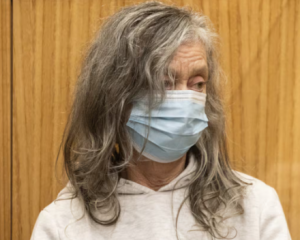
The 219 page report, released by the Government today, makes 40 recommendations in a broad assessment of health issues which affect an estimated 20% of New Zealanders each year, and 50-80% of people at least once in their lifetime.
The inquiry, led by former health and disability commissioner Ron Paterson, said New Zealand is "experiencing a rising tide of mental distress and addiction", which was mirrored in other Western countries.
It called for the Mental Health Act to be repealed and replaced with regulations which reflected a human rights approach to treatment and minimised the use of coercion.
It also called for an overhaul of alcohol and drugs laws, to more strictly regulate the sale and supply of alcohol, and replacing criminal sanctions for drug possession with a treatment approach.
"New Zealand's mental health and addiction problems cannot be fixed by government alone, nor solely by the health system,'' the report said.
"We can't medicate or treat our way out of the epidemic of mental distress and addiction affecting all layers of our society.
"We need to ensure practical help and support in the community are available when people need it, and government has a key role to play here.
"But some solutions lie in our own hands. We can do more to help each other.''
BY THE NUMBERS
- One in five New Zealanders experience mental illness or significant mental distress each year.
- The annual cost of serious mental illness, including addiction, is an estimated $12 billion - 5% of gross domestic product.
- 50-80% of New Zealanders will experience mental distress or addiction challenges, or both, in their lifetime.
- Every year, 20,000 people attempt to take their own life.
- 87% of prisoners have experienced an alcohol or other drug problem.
- Over 70% of people who attend addiction services have co-existing mental health conditions; over half of mental health service users have co-existing substance abuse problems.
New Zealand had a solid foundation of policy and treatment programmes to build on, but the system was under pressure and unsustainable in its current form, the report said.
"Signs include escalating demand for specialist services, limited support for people in the community and difficulties recruiting and retaining staff.
"Despite our current level of investment in mental health and addiction services, we don't appear to be achieving good outcomes, and the outcomes for specific populations (for example Maori, Pacific peoples and Rainbow communities) are poor.''
The mental health system was set up to respond to people with a diagnosed mental illness but did not respond well to other people who were seriously distressed.
"Even when it responds to people with a mental illness, it does so through too narrow a lens,'' the report said.
"People may be offered medication, but not other appropriate support and therapies to recover.
"The quality of services and facilities is variable: too many people are treated with a lack of dignity, respect and empathy.''
KEY RECOMMENDATIONS
The report made 40 recommendations, which included:
- Repeal and replace the Mental Health Act;
- Review laws and regulations concerning drug possession and sale of alcohol;
- Set a target of a 20% reduction in suicide rates by 2030;
- Establish a suicide prevention office;
- Establish a new Mental Health and Wellbeing Commission;
- Significantly increase access to mental health and addiction services;
- Make improving mental health a specific focus of the primary health care system;
- Strengthen the consumer voice in developing mental health and addiction programmes;
- Make families more involved in treatment;
- Improve training and retention of mental health and addiction workers.
There was consensus about the need for reform, but no one had taken a bold, health-oriented approach to the harmful use of alcohol and other drugs.
"Our approach to suicide prevention and the support available to people after a suicide is patchy and under-resourced,'' the report said.
"Tackling the social and economic determinants of mental health and wellbeing requires a co-ordinated, integrated approach from social services.''
The inquiry - the sixth general inquiry into mental health policy and services in New Zealand since 1858 - received 5200 submissions, and held 400 meetings and 26 public forums.

"Mental health and addiction are issues for all New Zealanders: every community and just about every family has someone in it that has lived with a mental health or addiction challenge,'' he said.
"The inquiry heard many stories of people who did not get the help they needed and deserved.
"We must listen to these voices of people with lived experience.''
Dr Clark warned many of the issues New Zealand faced in improving its population's wellbeing, such as workforce shortages, would take years to fix.
"Reshaping our approach to mental health and addiction is no small task and will take some time,'' he said.
"But I'm confident this report points us in the right direction, and today marks the start of real change for the better.''
Sunny Collings, director of the Suicide and Mental Health Research Group at the University of Otago's Wellington campus, said the most important theme in the report was lack of leadership in mental health and suicide prevention.
"This has been a major contributor to where we now find ourselves,'' Prof Collings said.
"However it is translated, through institutional structures such as a commission and offices, it is imperative that the new leadership is characterised by a compelling and visionary leadership style, diversity, compassion, and a deep familiarity with the challenges brought by the state of the scientific evidence.''
Need help?
Need to talk?
1737, free 24/7 phone and text
Healthline: 0800 611-116
Lifeline Aotearoa: 0800 543-354
Suicide Crisis Helpline: 0508 828-865 (0508 TAUTOKO)
Samaritans: 0800 726-666
General mental health inquiries: 0800 443-366
The Depression Helpline: 0800 111-757
Youthline: 0800 376-633, txt 234 or talk@youthline.co.nz
What’s Up (for 5 to 18-year-olds; 1pm-11pm): 0800 942-8787
Kidsline (aimed at children up to age 14; 4pm-6pm weekdays): 0800 54-37-54 (0800 kidsline)












